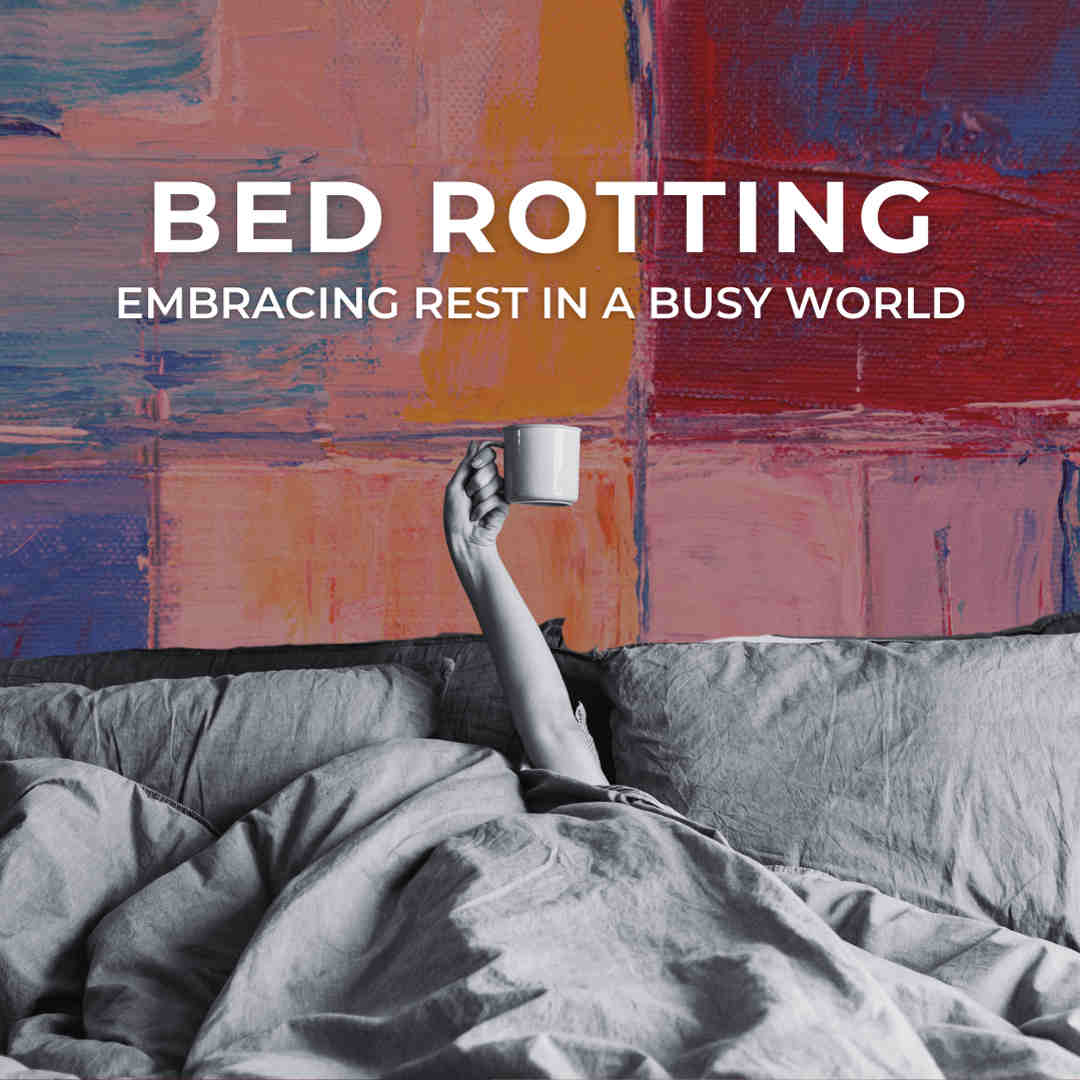CATEGORIES
#Breaking Stereotypes #Health and Wellness #Well-BeingOverview:
- Bed rotting encourages mindful self-care by embracing guilt-free rest to recharge and relax fully.
- Recognize when rest becomes an endless escape from responsibilities and mental well-being.
- Challenging productivity stereotypes makes slowing down feel empowering.
- Mindful rest practices create balance, reducing burnout and promoting sustainable personal growth.
What Is Bed Rotting?
In today’s hustle-driven world, lounging in bed for hours doing nothing feels counter-cultural against the norm of constant busyness. Because of that, “bed rotting” has become a recent trend among youth seeking a break from life’s nonstop demands. Sometimes, it feels good to just let yourself be without chasing productivity. But what exactly is bed rotting, and why is it resonating with so many?

“Bed rotting” might sound pretty weird at first but is a term born from social media, specifically TikTok. It’s about lying in bed for long periods, scrolling on the phone, watching Netflix, reading, or staring at the ceiling. And no, this is not about being lazy or caught in any kind of depressive rut. To many of us, this is a conscious call: to slow down, to recharge. After all, in a world packed with deadlines, side gigs, and endless commitments, melting into bed feels like radical self-care.
The Benefits of Intentional Rest
When practiced mindfully, bed rotting can be a powerful tool for enhancing well-being.
Mental Health: Giving yourself permission to rest can ease stress and mental fatigue. Letting your mind wander without stressing about productivity sparks new ideas and helps you focus better in your daily routine. These moments of stillness can also help process emotions and prevent burnout.
Physical Health: Spending more time in bed can tell your body it’s safe to relax. It helps in restoring lost energy, regulating sleep, and giving muscles time to heal. Sometimes all your body wants to do is slow down and heal to feel better again.
When Rest Becomes Avoidance
While bed rotting can be restorative, it’s essential to recognize when rest shifts from intentional self-care to avoidance. Spending excessive time in bed to escape responsibilities or suppress emotions can signal an unhealthy pattern.
Signs of Unhealthy Patterns
- Avoiding daily responsibilities or social interactions.
- Feeling guilt or shame about time spent resting.
- Not finding rest restorative but instead feeling more fatigued or isolated.
- Constantly engaging in mindless activities like doom scrolling or binge-watching content without feeling any more relaxed.

Finding a Balance
- Set gentle boundaries for rest—like designating time for bed rotting without letting it bleed into all-day avoidance.
- Check in with your emotions: Are you resting to recharge or to avoid challenges?
- Pair restful periods with small, achievable tasks to maintain a sense of accomplishment.
Redefining Productivity
Society tells us that productivity means being in constant motion—checking off lists, juggling a million things, and being busy nonstop. And when we pause, we feel guilty, as if we are wasting time. However, the truth is that being productive isn’t about doing more; it’s about doing things well.
By letting go of the assumption that rest is “wasted time,” we unlock an understanding of its true value. Rest is not only part of recovery, but also essential for being mentally sharp, emotionally strong, and truly productive. To choose rest isn’t a weakness; it is a smart, intentional way to take care of ourselves.

Practical Tips for Mindful Rest
Intentional rest doesn’t always mean spending entire days in bed. Incorporating mindful breaks and creating a restful environment can make a significant difference.
Incorporate Short Breaks
- Pause between tasks to stretch or take a few deep breaths.
- Step outside for five minutes to feel the sun or breeze on your face.
- Lie down for a few moments without your phone, allowing your mind to reset.
Create a Restful Environment
- Turn your space into a cozy retreat. Think fluffy blankets, warm lights, and maybe lighting a candle for that zen vibe.
- Clean up any clutter so your space feels peaceful, not chaotic.
- Create a dedicated relaxation spot. It doesn’t have to be fancy—even a comfy chair or a corner with your favorite pillows can become your personal relaxation nook.

Be Mindful About How You Rest
- Pay attention to how you’re spending this downtime. Are you truly resting, or is endless scrolling leaving you more anxious?
- Try swapping mindless scrolling for something more nourishing—like reading, listening to soothing music, or just letting yourself daydream.
Conclusion:
Rest is not indulgent—it’s essential. Bed rotting, when practiced mindfully, serves as a reminder that we are human beings, not machines. So, permit yourself to rest without guilt. Finding a mindful balance between rest and activity allows us to thrive rather than merely survive.


